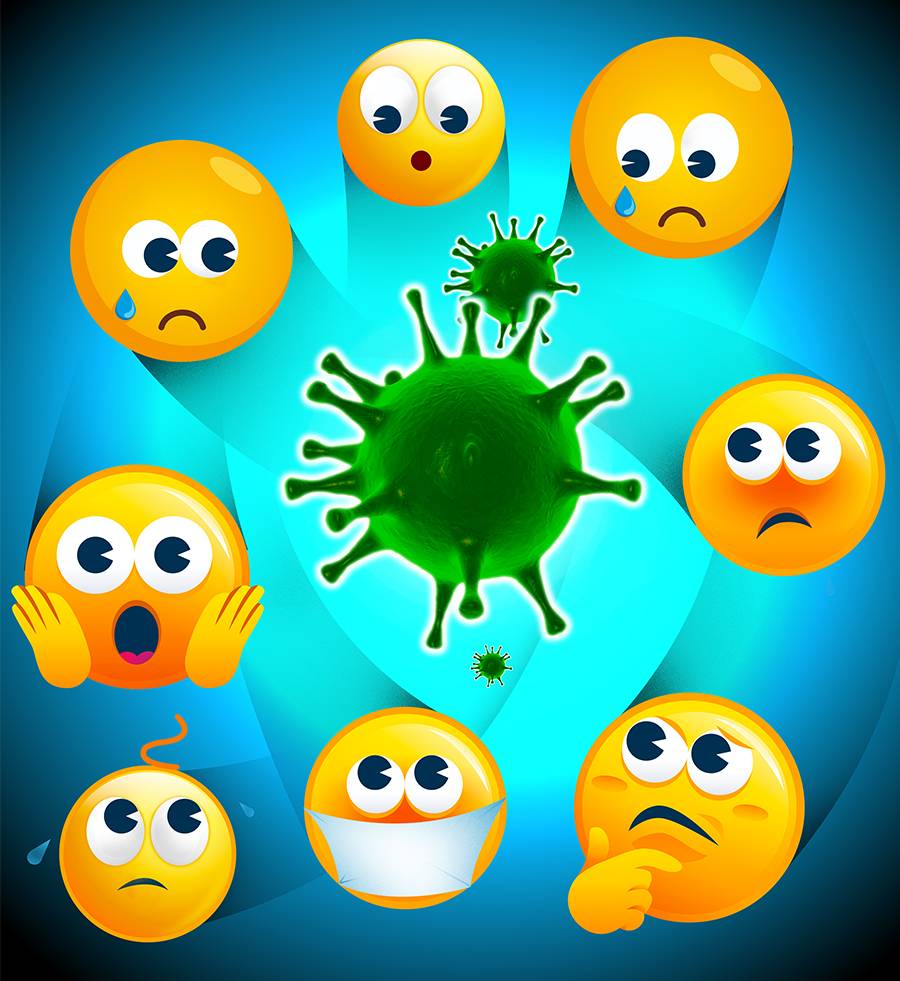The COVID-19 pandemic has had a major effect on our lives. Many of us are facing challenges that can be stressful, overwhelming and cause strong emotions in adults and children. Covid appropriate behavior and actions such as social distancing are necessary to reduce the spread of COVID-19, but they can make us feel isolated and lonely and can increase stress and anxiety. Learning to cope with stress in a healthy way will make you, the people you care about, and those around you become more resilient.
Stress can cause the following:
- Feelings of fear, anger, sadness, worry, numbness, or frustration
- Changes in appetite, energy, desires, and interests
- Difficulty concentrating and making decisions
- Difficulty sleeping or nightmares
- Physical reactions, such as headaches, body pains, stomach problems, and skin rashes
- Worsening of chronic health problems
- Worsening of mental health conditions
- Increased use of tobacco, alcohol, and other substances
It is natural to feel stress, anxiety, grief, and worry during the COVID-19 pandemic. Below are ways that you can help yourself, others, and your community manage stress.
Healthy Ways to Cope with Stress
- Take breaks from watching, reading, or listening to news stories,
- Take care of your body through exercise, sleep and rest.
- Make time to unwind.
- Connect with others through virtual methods of communication.
- Taking care of yourself can better equip you to take care of others. During times of social distancing, it is especially important to stay connected with your friends and family. Helping others cope with stress through phone calls or video chats can help you and your loved ones feel less lonely or isolated.
THE MANTRA IS TO REASSURE YOURSELF THAT “THIS TOO SHALL PASS!”
If you are struggling to cope, there are many ways to get help. Help and support is vital for persons with mental illness from their families and other care givers. Health Helplines can provide support, in addition to regular taking of prescribed medication, a regular daily routine, keeping engaged and positive.
AWAG is active on the issue of mental healthcare of women and adolescents since over a decade. The interventions provide counselling and psychiatric support to persons suffering from mental illnesses.

